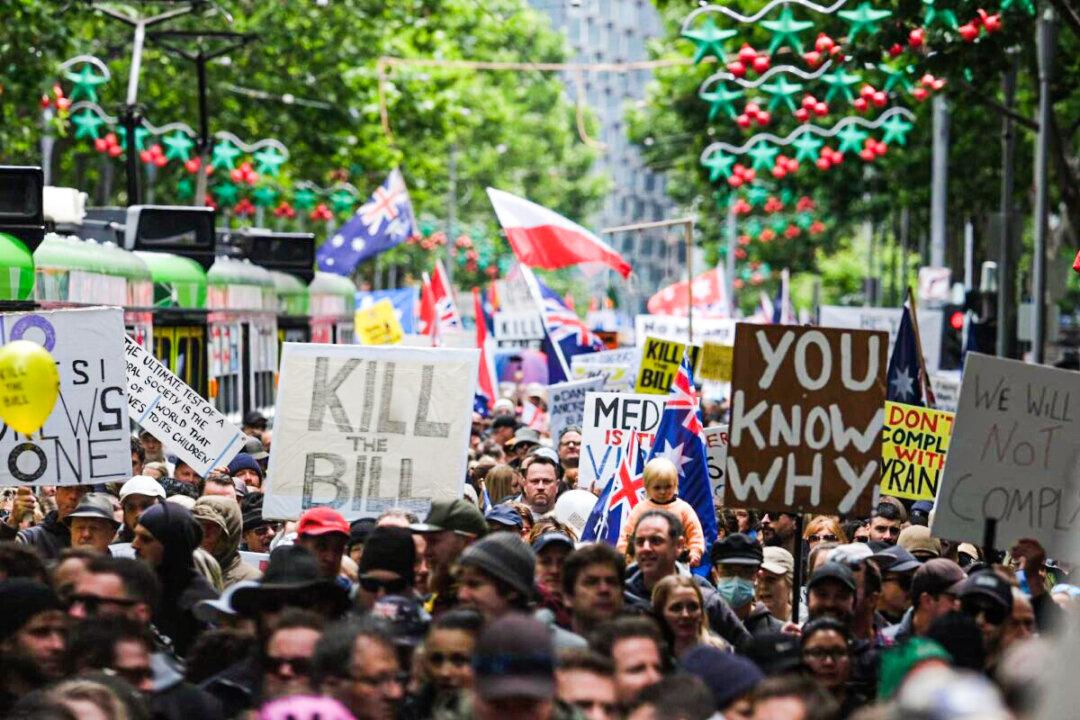Thousands of Australians marched peacefully through Melbourne for a second Saturday in a row on Nov. 13 to protest against the Victorian state government’s pandemic legislation and vaccine mandates.
The proposal would hand Premier Daniel Andrews unprecedented power to declare pandemics in the state and grant himself emergency powers for up to three months, with no cap on how often they can be extended.





